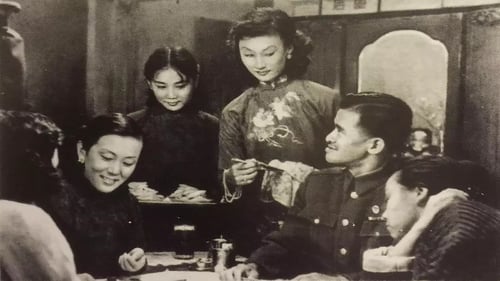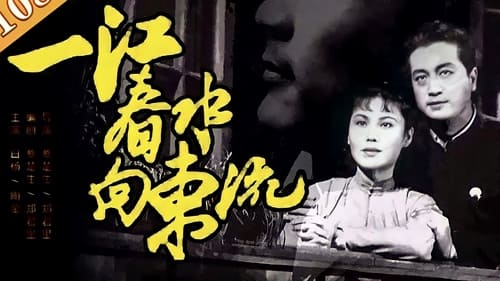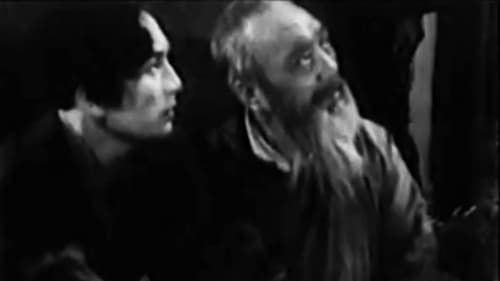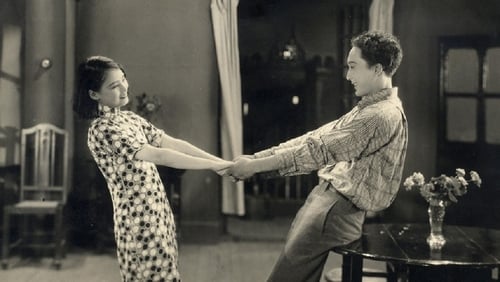Zheng Junli
Рождение : 1911-12-05, Shanghai, China
Смерть : 1969-04-23
История
Цзюньли Чжэн (1911—1969) — китайский актёр и режиссёр.

Writer
О жизни в Шанхае и этом периоде творчества революционера, основоположника новой китайской музыки, композитора Не Эра, о его борьбе против идеологов «чистого» искусства.

Director
О жизни в Шанхае и этом периоде творчества революционера, основоположника новой китайской музыки, композитора Не Эра, о его борьбе против идеологов «чистого» искусства.

Director
A critical hit during one of China’s most politically charged periods, Zheng’s follow-up to his 1959 anniversary epics merged Soviet-style socialist realism with his own breakthroughs in film technique, specifically his use of continuous camera movement in the spirit of traditional Chinese scrolls. Tractor-kino at its finest, the film revolves around two rural lovers—one struck with a deadly disease—and their eventual survival thanks to socialist medical advances.

Director
Фильм посвящен борьбе китайского народа с британским империализмом накануне и во время «опиумной» войны 1840 года. Линь Цзэсюй (1785-1850), назначенный императорским комиссаром в приморскую провинцию Гуандун, — сторонник самых решительных мер против англичан. Он приказывает сжечь 20 000 ящиков опиума, конфискованных у британских торговцев. В ответ Британия развязывает войну, но Линь со своей армией и при поддержке жителей Гонконга отбивает атаку. В результате британский флот отправляется на север, чтобы напасть на Тяньцзин, находящийся в непосредственной близости от столичного Пекина. Коррумпированный императорский двор решает пойти на уступки, смещает Линь Цзэсюя со всех постов и отправляет в ссылку в далекий Синьцзян. Но китайский народ продолжает бороться с иностранными захватчиками.

Director
В середине XIX века, в разгар Опиумной войны, китайский народ восстал против феодального строя и маньчжурской династии, капитулировавшей перед иностранными интервентами. … Понурив головы, бредут закованные в кандалы крестьяне, те, кто отказался давать деньги для расправы с восставшими братьями. Неожиданно им преграждают дорогу. Это Сун Цзин-ши со своим отрядом пришёл на выручку. Освобождённые крестьяне присоединились к Сун Цзин-ши. Так образовалось ядро армии «Чёрного знамени».
«Их вёл Сун Цзин-ши» — первый исторический фильм, созданный в социалистическом Китае 1950-х годов. Сценарий его основан на достоверном материале, собранном в деревнях провинции Шаньдун. В народе до сих пор живут легенды о жестокости Сэн Гэлиньцина и храбрости Сун Цзин-ши, которого называют «китайским Спартаком».

Screenplay
An absorbing example of genre filmmaking in the People’s Republic of China, Husband and Wife could at first glance be mistaken for any other romantic melodrama chronicling the rise and decline of a married couple’s love; here, though, that love takes place in (and is entirely defined by) a realm of political upheaval and Maoist ideology. A Shanghai intellectual marries an illiterate peasant woman–turned–collectivist hero, with outcomes both universal (differences emerge) and specific (revolutionary self-critiques). At first a popular hit, the film (and Zheng himself) was soon critically attacked for counterrevolutionary, pro-bourgeois thought. Zheng even penned a confessional autocritique, but the damage to his career was done. (BAMPFA)

Director
An absorbing example of genre filmmaking in the People’s Republic of China, Husband and Wife could at first glance be mistaken for any other romantic melodrama chronicling the rise and decline of a married couple’s love; here, though, that love takes place in (and is entirely defined by) a realm of political upheaval and Maoist ideology. A Shanghai intellectual marries an illiterate peasant woman–turned–collectivist hero, with outcomes both universal (differences emerge) and specific (revolutionary self-critiques). At first a popular hit, the film (and Zheng himself) was soon critically attacked for counterrevolutionary, pro-bourgeois thought. Zheng even penned a confessional autocritique, but the damage to his career was done. (BAMPFA)

Writer
At a Shanghai apartment, Mr Hou, a Nationalist official, gets ready to move to Taiwan upon the imminent defeat of the KMT during the Civil War. Mrs Hou gives an ultimatum to the rest of the tenants to move out on behalf of her husband, who is the "owner" of the flat and who is now planning to sell it. From the conversations with the rest, we find out that Hou has been a Hanjian during the Sino-Japanese War and that he has since taken over the apartment by force from the old landlord, Mr Kong. The tenants, including Mr Kong, Mrs Xiao, Little Broadcast (alias Mr Xiao, played by Zhao Dan) and a schoolteacher, Mr Hua, and his wife, initially plan to band together, but circumstances force them to find other ways out. Mr Hua tries to find a place to stay at the KMT-sponsored school he is teaching in. Little Broadcast and Mrs Xiao invest in black market gold. As the situation escalates, Mr Hua gets arrested by KMT agents and his young daughter falls desperately ill.

Director
At a Shanghai apartment, Mr Hou, a Nationalist official, gets ready to move to Taiwan upon the imminent defeat of the KMT during the Civil War. Mrs Hou gives an ultimatum to the rest of the tenants to move out on behalf of her husband, who is the "owner" of the flat and who is now planning to sell it. From the conversations with the rest, we find out that Hou has been a Hanjian during the Sino-Japanese War and that he has since taken over the apartment by force from the old landlord, Mr Kong. The tenants, including Mr Kong, Mrs Xiao, Little Broadcast (alias Mr Xiao, played by Zhao Dan) and a schoolteacher, Mr Hua, and his wife, initially plan to band together, but circumstances force them to find other ways out. Mr Hua tries to find a place to stay at the KMT-sponsored school he is teaching in. Little Broadcast and Mrs Xiao invest in black market gold. As the situation escalates, Mr Hua gets arrested by KMT agents and his young daughter falls desperately ill.

Writer
Скромная и добродетельная девушка по имени Суфэнь, работающая на хлопчатобумажной фабрике в Шанхае, во время учебы в вечерней школе знакомится с учителем по имени Чжан Чжунлян, они женятся. Через год после свадьбы у них рождается ребенок, и в этом же году начинается война с японскими агрессорами. Чжан Чжунлян вступает в спасательный отряд и получает приказ отправиться вслед за армией. В городе Нанкине он на волосок от смерти, попадает в плен к врагам и претерпевает немыслимые трудности. На оккупированной японцами территории брат Чжан Чжунляна Чжунминь и его коллега из начальной школы деревни Ваньхуа вместе вступают в партизанский отряд. Отца убивают японцы, Суфэнь с ребёнком и матерью мужа возвращается в Шанхай, где работает в лагере для беженцев и заботится о сиротах.

Director
Скромная и добродетельная девушка по имени Суфэнь, работающая на хлопчатобумажной фабрике в Шанхае, во время учебы в вечерней школе знакомится с учителем по имени Чжан Чжунлян, они женятся. Через год после свадьбы у них рождается ребенок, и в этом же году начинается война с японскими агрессорами. Чжан Чжунлян вступает в спасательный отряд и получает приказ отправиться вслед за армией. В городе Нанкине он на волосок от смерти, попадает в плен к врагам и претерпевает немыслимые трудности. На оккупированной японцами территории брат Чжан Чжунляна Чжунминь и его коллега из начальной школы деревни Ваньхуа вместе вступают в партизанский отряд. Отца убивают японцы, Суфэнь с ребёнком и матерью мужа возвращается в Шанхай, где работает в лагере для беженцев и заботится о сиротах.

厌战的日兵

Three stories about art stages. "Film City", "Drama Group" and "Dance Class".

A Chinese film

A silent Chinese feature film

Chen Zuo
In 1930, two sisters from the countryside, the serious Zhang Lan (Ruan Lingyu) and the frivolous Zhang Tao graduate from the secondary school where their mother Zhang Jie serves as principal. They both love their cousin Zuo, but have ambitions other than marriage. Their lives change dramatically when both attend university in Shanghai and encounter modern urban life and rapidly changing society. The film also depicts the emergence of Chiang Kai-shek's 1934 New Life Movement. Lianhua Film Studio did the film to appease the Nationalist Party which accused it of primarily presenting left-wing films, which was true.

Jun Zheng
Китай. Уже многие годы война, то гражданская, то с японцами. В стране разруха, безработица. Бригада поденных рабочих нанимается на строительство автодороги, имеющей стратегическое значение. Но враг не может допустить, чтобы дорога была достроена…

Yu Haichou
В основу фильма положена судьба актрисы Ай Ся, которая покончила жизнь самоубийством в Шанхае в 1934 г. На следующий год актриса Жуань Линъюй, которая играет главную роль в этом фильме, также покончила с собой.

郑君

Song Ke
Крестьянин Сон со своим отцом, сестрой и братом жили дружной семьей в гармонии с собой и окружающим миром. Но местный повеса, племянник генерала, пожелал во что бы то ни стало сделать сестру Сона своей наложницей...

Pink Dream tells the story of a young novelist who is supported by a loving and hard-working wife. The novelist, however, is drawn to the decadent life of a socialite who introduces him to the dance halls that dot Shanghai. As the film progresses, the novelist soon learns of the emptiness of this urban existence and rejects it as a "pink dream."

Zheng
A Chinese couple in the 1930s struggle to survive. Things get complicated for them when he enlists to fight the war against Japan.

Сяо Ли
Озорную деревенскую красавицу Сяо Фэн, по прозвищу Дикая роза, постигает несчастье: сгорел ее дом и пропал отец. Художник, с которым она недавно познакомилась, берет ее с собой в Шанхай…

三子
















